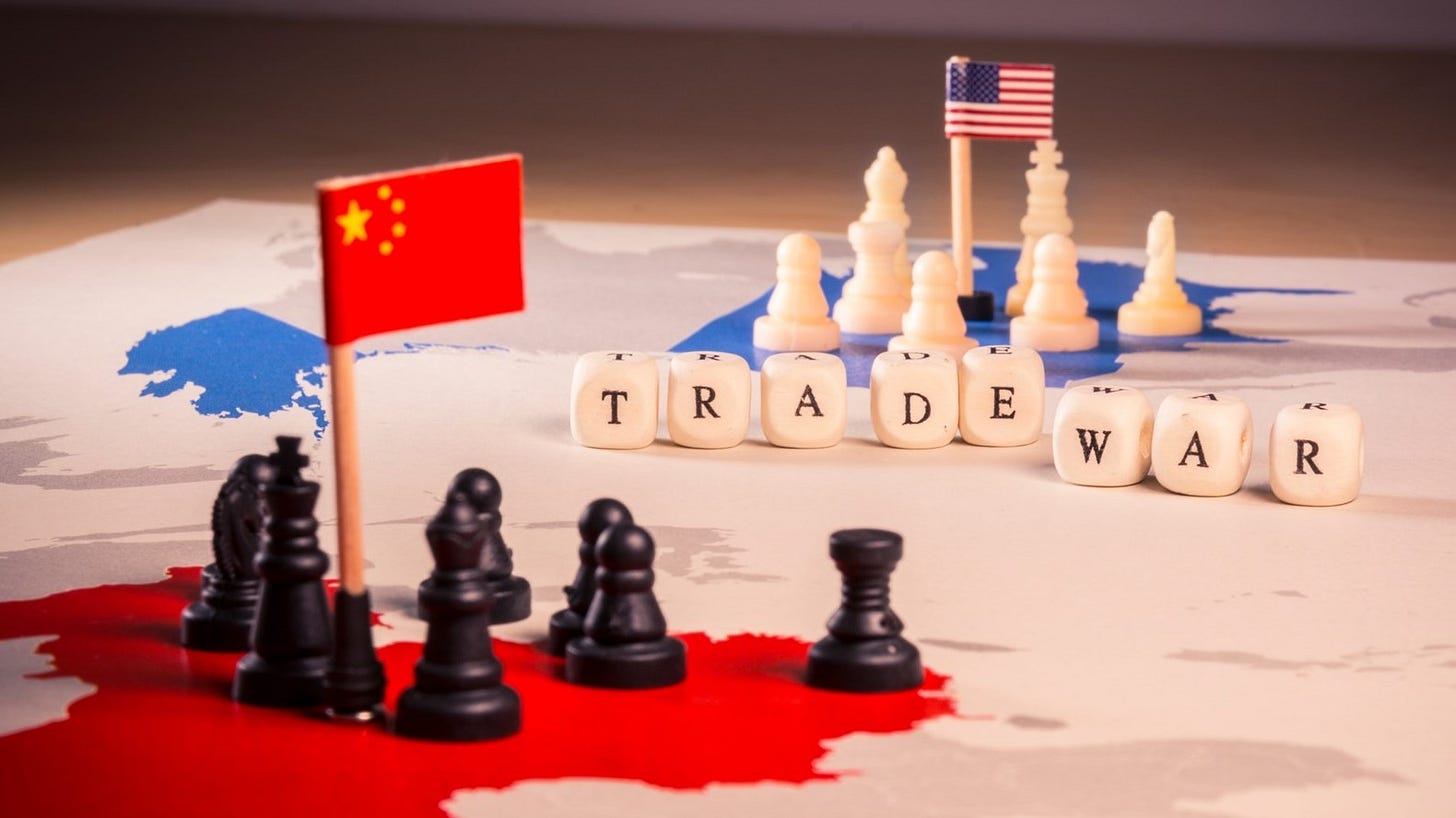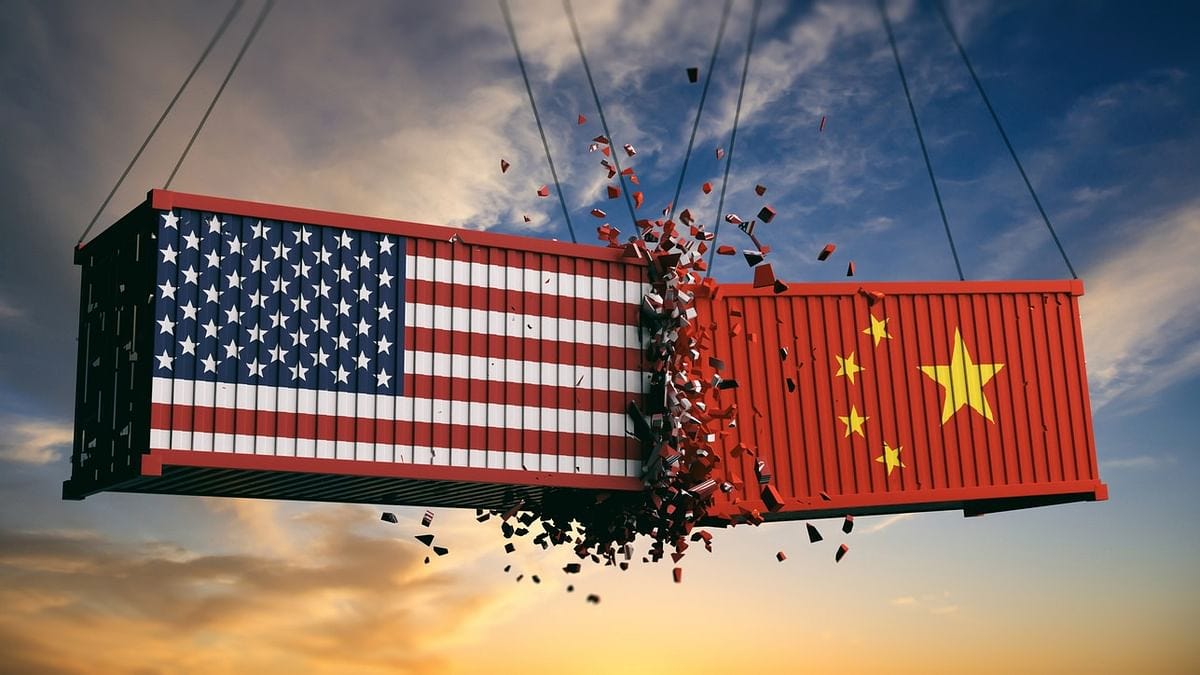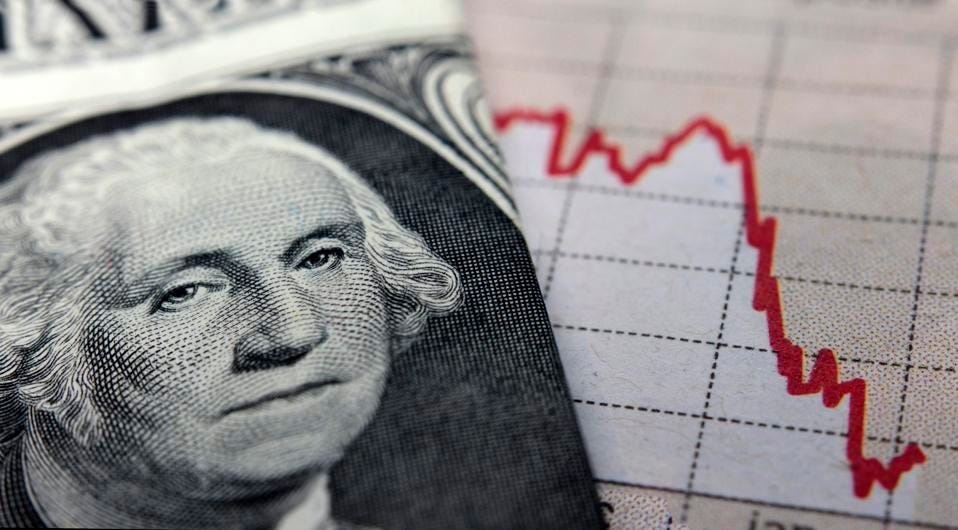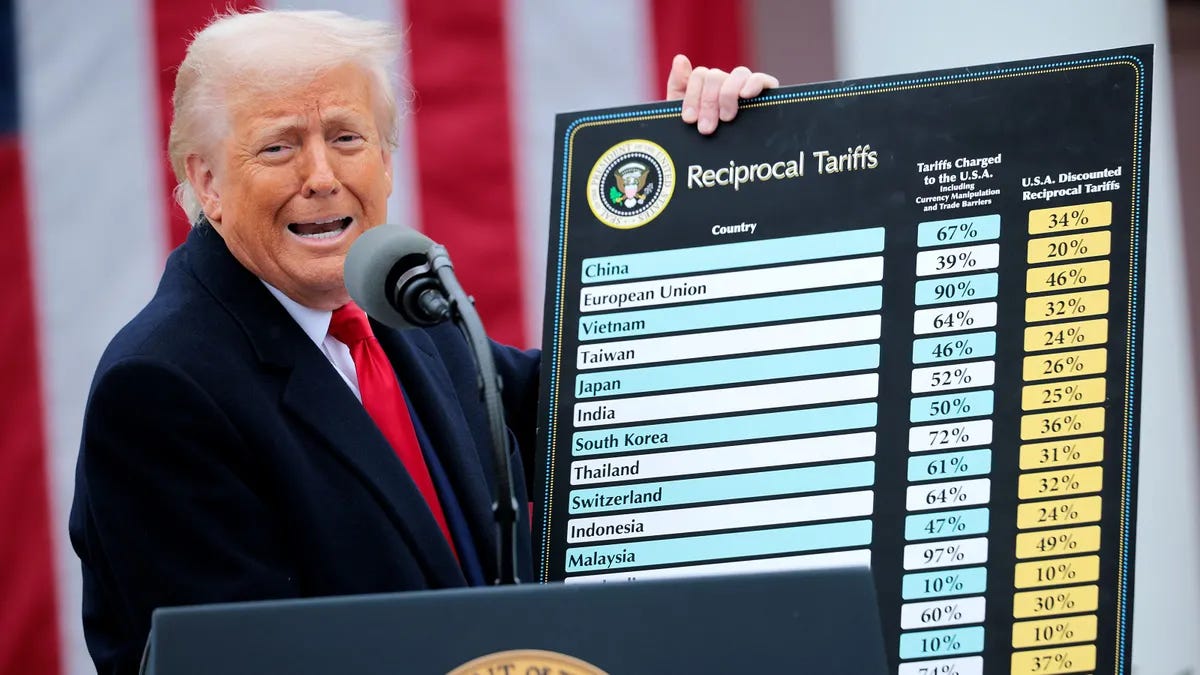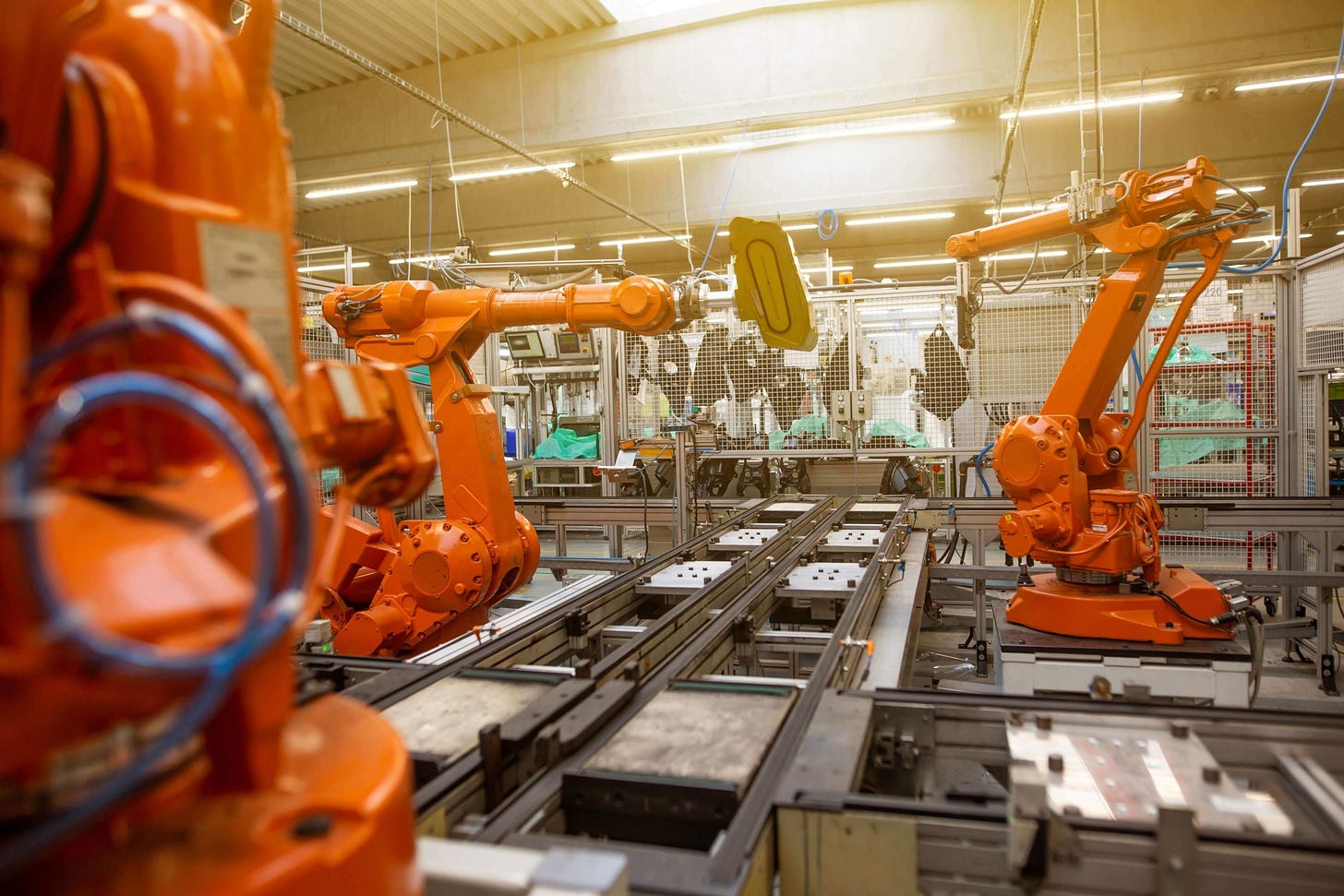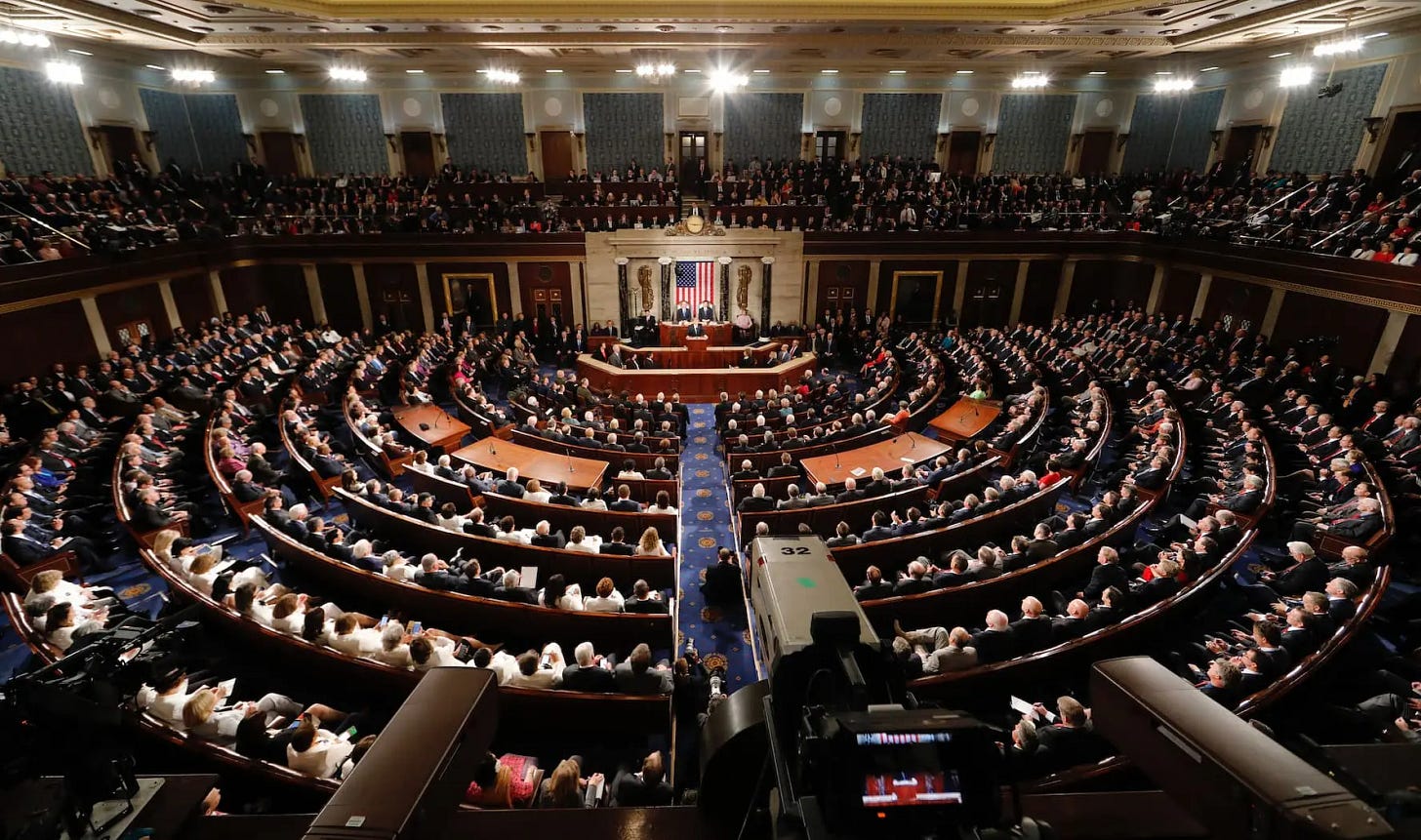The mainstream media would have you believe tariffs are a fast-track ticket to economic collapse. But are they telling you the whole story? From historical context to present-day economic battles, we're diving into what’s really happening—so you can understand the stakes, and how they affect your wallet, your job, and the country’s future.
🔍 In Case You Missed It:
📉 Wall Street panics over Trump-era tariffs—again.
📊 GDP Now tracker drops from +2.4% to -2.7% overnight.
📉 Yield curve inversion may signal we're already in a recession.
💼 Massive layoffs looming; new hiring has already dried up.
🇺🇸 Trump plans to bring back billions in foreign investment and jobs.
📢 Yet, no one on the left is offering a clear alternative economic plan.
Tariffs Aren't the Villain — Speculation Is
Every time you hear panic over tariffs, someone inevitably references the Smoot-Hawley Act of 1930. But here's the truth: the Great Depression wasn’t caused by tariffs. It was caused by reckless speculation, unregulated markets, and dangerous cycles of debt and overextension. The 2008 crash? That wasn’t tariffs either—it was a subprime mortgage scheme cooked up by Wall Street.
Tariffs are tools—tools that, when used strategically, can protect workers, spur domestic manufacturing, and shift economic power back to Main Street. Trump’s move isn’t unprecedented. Presidents from Reagan to Clinton used tariffs. The difference? Trump’s unapologetic about it.
Recession Incoming? Here's What They Don't Say On TV
Wall Street insiders, economists, and even the Federal Reserve’s own trackers are flashing warning signs. The Atlanta Fed’s GDP Now indicator nosedived recently, and the shape of the yield curve—a reliable recession predictor—is screaming caution.
Hiring has plateaued. Layoffs are ramping up. And short-term interest rates are dropping, signaling the recession might not be coming... it might already be here. But instead of addressing this head-on, politicians and pundits are more interested in blaming tariffs.
The irony? Lower interest rates don’t stimulate the economy. They often accompany economic sickness: recession, panic, and depression. We’re headed toward zero—and that’s not a good thing.
Who Really Pays Tariffs? (Hint: Not You)
One of the biggest lies repeated in economic debates is that tariffs are a tax on consumers. Not true.
When a tariff is imposed, it's paid upfront by the importer. Often, that cost is either absorbed by the importer or pushed back to the producer overseas. Why? Because U.S. consumers are already maxed out. Prices are high, credit lines are stretched, and wages aren’t keeping up. Retailers know they can’t raise prices 20% overnight.
If Walmart or Target could raise prices simply because tariffs were imposed, they would’ve done it already. The reality? Producers and importers take the hit—not consumers. And meanwhile, U.S. industry gains.
Manufacturing Renaissance: Bring It Home
Trump’s tariffs aren’t just about economics—they're about sovereignty. By making it less attractive to manufacture abroad, these policies are pulling trillions in foreign investment into the U.S. From semiconductor fabs to car plants, corporations are setting up shop in America again.
Apple is investing hundreds of billions domestically. Taiwan Semiconductor is building fabs here. Honda and other carmakers are expanding production inside our borders. Why? Because Trump’s message is clear: sell here, build here.
This is what economists call the "American System," rooted in Alexander Hamilton’s vision. Tariffs protect fledgling industries, grow the domestic economy, and preserve national strength.
No One Else Has a Plan
Let’s face it—no one in Washington is offering an alternative economic vision. You hear outrage, performative speeches, and anti-Trump sentiment. But where’s the counter-plan?
What should we do about $37 trillion in national debt? What’s the solution to a $1.7 trillion deficit? How do we rebalance trade after decades of loss? Silence. No real answers. Just criticism.
Whether you love or hate Trump’s style, he’s the only one putting numbers and strategies on the table. Love him or not, that deserves serious attention.
Bottom Line
Wall Street and the global elite are angry—not because tariffs don't work, but because they do. They threaten the status quo. They redirect power. And they prioritize American jobs, industry, and independence over shareholder profits.
You don’t have to agree with every move. But you should demand real answers from the people who claim to be against it.
Got thoughts on this? Hit reply and let us know.
Stay informed. Stay prepared. And always question the narrative.
🇺🇸


